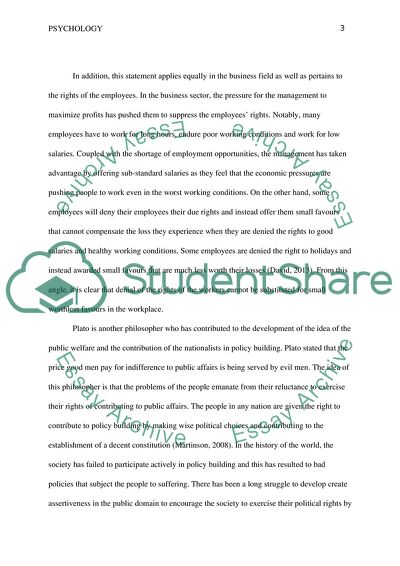Cite this document
(The Relevance of Plato's and St. Augustin Statements to the Essay Example | Topics and Well Written Essays - 2500 words, n.d.)
The Relevance of Plato's and St. Augustin Statements to the Essay Example | Topics and Well Written Essays - 2500 words. https://studentshare.org/philosophy/1807413-1charity-is-no-substitue-for-justice-withheld-st-augustine-2the-price-good-men-pay-for-indifference-to-public-affairs-is-to-be-ruled-by-evil-men-platoare-either-of-the-two-statements-above-as-relevant-today-as-they-were-when-th
The Relevance of Plato's and St. Augustin Statements to the Essay Example | Topics and Well Written Essays - 2500 words. https://studentshare.org/philosophy/1807413-1charity-is-no-substitue-for-justice-withheld-st-augustine-2the-price-good-men-pay-for-indifference-to-public-affairs-is-to-be-ruled-by-evil-men-platoare-either-of-the-two-statements-above-as-relevant-today-as-they-were-when-th
(The Relevance of Plato'S and St. Augustin Statements to the Essay Example | Topics and Well Written Essays - 2500 Words)
The Relevance of Plato'S and St. Augustin Statements to the Essay Example | Topics and Well Written Essays - 2500 Words. https://studentshare.org/philosophy/1807413-1charity-is-no-substitue-for-justice-withheld-st-augustine-2the-price-good-men-pay-for-indifference-to-public-affairs-is-to-be-ruled-by-evil-men-platoare-either-of-the-two-statements-above-as-relevant-today-as-they-were-when-th.
The Relevance of Plato'S and St. Augustin Statements to the Essay Example | Topics and Well Written Essays - 2500 Words. https://studentshare.org/philosophy/1807413-1charity-is-no-substitue-for-justice-withheld-st-augustine-2the-price-good-men-pay-for-indifference-to-public-affairs-is-to-be-ruled-by-evil-men-platoare-either-of-the-two-statements-above-as-relevant-today-as-they-were-when-th.
“The Relevance of Plato'S and St. Augustin Statements to the Essay Example | Topics and Well Written Essays - 2500 Words”. https://studentshare.org/philosophy/1807413-1charity-is-no-substitue-for-justice-withheld-st-augustine-2the-price-good-men-pay-for-indifference-to-public-affairs-is-to-be-ruled-by-evil-men-platoare-either-of-the-two-statements-above-as-relevant-today-as-they-were-when-th.


